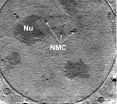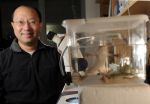(Press-News.org) Researchers from the University of Southampton have helped construct an online interactive world map which gives stark facts and figures about the health of women during pregnancy, childbirth and following the birth of their child.
Social scientists Professor Zoë Matthews and Dr Sarah Neal are working in collaboration with the White Ribbon Alliance for Safe Motherhood and the University of Aberdeen on a joint project worth in excess of £160,000 called 'The Atlas of Birth', which also includes a book, short film and flyers.
"We are using data from the United Nations and the World Health Organization to give a comprehensive picture of maternal health from around the world. Part of the project involves presenting the information in an easy-to-use online map, to help get key facts direct to policymakers," comments Professor Matthews of the University's Centre for Global Health, Population, Poverty and Policy.
Funded by the Partnership for Maternal, Newborn and Child Health and the Norwegian government, the project includes statistics on a wide range of issues including maternal deaths, pregnancies to very young girls and midwife contact.
Latest figures from the WHO show more than 99 percent of maternal deaths occur in developing countries and most of these in a handful of nations. Most of the very high rates of death are seen in sub-Saharan Africa, but India has the highest number of deaths, with 63,000 women dying every year.
Women in developing countries often become a mother very young, experience many closely spaced births, and run a risk as high as one in 11 of dying in childbirth across their lifetimes. In particular, girls under the age of 15 are five times more likely to die giving birth than women in their 20s.
Care from a midwife or professional with midwifery skills during birth is key to saving lives of both mothers and newborns. Despite this, the figures show two thirds of women in the poorest countries deliver without a midwife or other health worker.
"This interactive map will enable advocates across the world to quickly and effectively lobby governments, influence policymakers and inform the media, as public pressure grows to end the tragic and almost always preventable deaths of girls and women in childbirth," comments Brigid McConville, Director of the WRA in the UK.
INFORMATION:
The new online world map was unveiled at the PMNCH Partner's Forum in Delhi, India (Nov 2010). To view the online version of the 'Atlas of Birth', please go to this address: www.atlasofbirth.com/index.php
Online map of maternal health to inform world leaders
2010-11-20
ELSE PRESS RELEASES FROM THIS DATE:
New microscope reveals ultrastructure of cells
2010-11-20
For the first time, there is no need to chemically fix, stain or cut cells in order to study them. Instead, whole living cells are fast-frozen and studied in their natural environment. The new method delivers an immediate 3-D image, thereby closing a gap between conventional microscopic techniques.
The new microscope delivers a high-resolution 3-D image of the entire cell in one step. This is an advantage over electron microscopy, in which a 3-D image is assembled out of many thin sections. This can take up to weeks for just one cell. Also, the cell need not be labelled ...
Gene links to anorexia found by Children's Hospital of Philadelphia researchers
2010-11-20
Scientists at The Children's Hospital of Philadelphia have identified both common and rare gene variants associated with the eating disorder anorexia nervosa. In the largest genetic study of this psychiatric disorder, the researchers found intriguing clues to genes they are subjecting to further investigation, including genes active in neuronal signaling and in shaping interconnections among brain cells.
Anorexia nervosa (AN) affects an estimated 9 in 1000 women in the United States. Patients have food refusal, weight loss, an irrational fear of weight gain even when ...
Designing more effective anti-HIV antibodies
2010-11-20
Boston, Mass. – Although people infected with HIV produce many antibodies against the protein encapsulating the virus, most of these antibodies are strangely ineffective at fighting the disease. A new study suggests why some of the most common of these antibodies don't work: they target the protein in a form it takes after the virus has already invaded the cell, when it's too late, report researchers at Children's Hospital Boston and their colleagues.
The findings, published online Nov. 14 in the journal Nature Structural & Molecular Biology, refocus attention on the ...
Professor Zvi Ram presents phase III recurrent glioblastoma survival and quality of life data from the first pivotal study of the NovoTTF-100A at 15th Annual Society for Neuro-Oncology Scientific Meet
2010-11-20
MONTREAL, CANADA - November 19, 2010 - Data presented today from a pivotal, phase III randomized clinical trial for patients with recurrent glioblastoma tumors suggest that Tumor Treating Fields (TTF) therapy may increase median survival time and improve quality of life scores compared to best standard of care chemotherapy. Professor Zvi Ram, chairman of the Department of Neurosurgery at Tel-Aviv Sourasky Medical Center, presented the data at the Society for Neuro-Oncology (SNO) Annual Scientific Meeting.
Physicians delivered the investigational TTF therapy to patients ...
Childhood obesity linked to increased risk of adult cardiovascular and metabolic disorders
2010-11-20
New Rochelle, NY, November 19, 2010—Mounting evidence linking childhood obesity to an increasing risk of obesity, heart disease, type 2 diabetes, and other cardiovascular and metabolic disorders in adulthood is clearly presented in a comprehensive review article in the current issue of Childhood Obesity, published by Mary Ann Liebert, Inc. The article is available free online.
Authors Megan Moriarty-Kelsey, MD and Stephen Daniels, MD, PhD, Department of Pediatrics, University of Colorado School of Medicine, caution that the rising prevalence of obesity in children will ...
New path for colon cancer drug discovery
2010-11-20
An old pinworm medicine is a new lead in the search for compounds that block a signaling pathway implicated in colon cancer. The findings, reported by Vanderbilt University Medical Center researchers in the November issue of Nature Chemical Biology, suggest a fresh approach for developing therapeutics that target the pathway.
More than 90 percent of sporadic (non-inherited) colon cancers – the second deadliest type of cancer in the developed world – are caused by mutations that result in inappropriate activation of the Wnt (pronounced "wint") signaling pathway. Blocking ...
Scripps Research scientists identify first synthetic activator of 2 critical proteins
2010-11-20
JUPITER, FL, November 19, 2010 – Scientists from the Florida campus of The Scripps Research Institute have identified a novel synthetic activator of a pair of proteins that belong to a protein family playing key roles in human metabolism and immune function. The discovery could provide new and potentially more effective therapeutic approaches to diseases ranging from diabetes to osteoporosis.
The study was published in the November issue (Volume 5, Issue 11) of the journal ACS Chemical Biology.
"This new compound is particularly important because it works in vivo, ...
Invention helps students learn surgical techniques before operating on patients
2010-11-20
FORT COLLINS - In the last 50 years, modern medicine has made astounding advances in surgery, yet many of today's veterinary and human medicine students still hone basic surgical and suturing skills on carpet pads and pig's feet before transitioning to a live patient. An invention by Colorado State University veterinarians provides students with artificial body parts that look, feel, behave, and even bleed just like real skin, muscles and vessels.
The artificial replicas of sections of human and animal bodies -- such as an abdominal wall -- give students a realistic learning ...
UH physicists study behavior of enzyme linked to Alzheimer's, cancer
2010-11-20
HOUSTON, Nov. 19, 2010 – University of Houston (UH) physicists are using complex computer simulations to illuminate the workings of a crucial protein that, when malfunctioning, may cause Alzheimer's and cancer.
Margaret Cheung, assistant professor of physics at UH, and Antonios Samiotakis, a physics Ph.D. student, described their findings in a paper titled "Structure, function, and folding of phosphoglycerate kinase (PGK) are strongly perturbed by macromolecular crowding," published in a recent issue of the journal Proceedings of the National Academy of Sciences, one ...
New study into bladder regeneration heralds organ replacement treatment
2010-11-20
Researchers in the United States have developed a medical model for regenerating bladders using stem cells harvested from a patient's own bone marrow. The research, published in STEM CELLS, is especially relevant for paediatric patients suffering from abnormally developed bladders, but also represents another step towards new organ replacement therapies.
The research, led by Dr Arun Sharma and Earl Cheng from the Feinberg School of Medicine at Northwestern University and Children's Memorial Research Center, focused on bone marrow mesenchymal stem cells (MSCs) taken from ...



